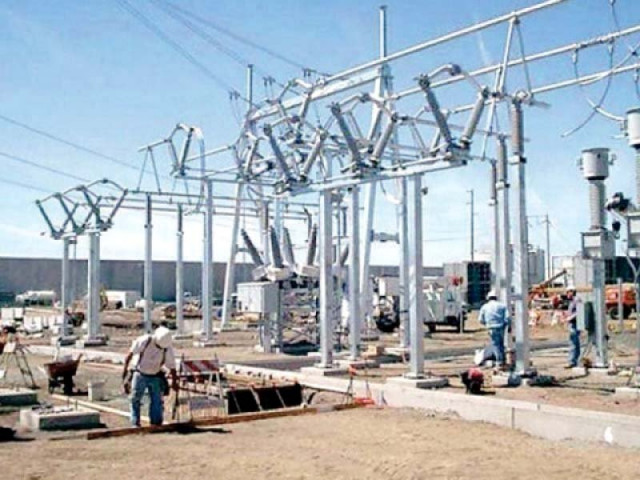CASA-1,000 delayed as French firm seeks more time
Project is now likely to be completed in 2020, two years later than the earlier target

Project stakeholders have also framed third-party access rules that allow a country, which is not part of the scheme, to export electricity. PHOTO: FILE
“Four countries that are part of the project - Tajikistan, Kyrgyzstan, Afghanistan and Pakistan - have agreed to give relaxation in the time frame keeping in view the request of Alstom, which is a credible name and a major supplier of converter stations across the world,” an official said.
Pakistan has to plan its role: FCCI
Several interested companies including General Electric of the US, Siemens of Germany and Japan’s Mitsubishi had responded to the invitation for bids. However, Alstom sought more time.
Two converter stations are planned to be set up - one each in Tajikistan and Pakistan - for transmitting electricity under the Casa-1,000 project that will link Central and South Asia through an energy corridor.
The Central Asia-South Asia Regional Electricity Market is envisaged to be developed in a phased manner through institutional arrangements and infrastructure building that will utilise Central Asia’s power resources to tackle shortages in South Asia.
Earlier, bids were invited one year ago, but these were cancelled later in the face of high prices quoted for setting up the converter stations, which would convert direct current into alternative current or the reverse. “A fresh process for awarding the contract is going on,” the official said.
In another tender, the project stakeholders have sought bids for laying transmission lines in their territories.
“Converter stations are very important, but the building of transmission lines is not a hectic task; even Pakistani companies can lay the transmission lines,” the official said.
Earlier, the Casa-1,000 project was expected to be completed by the end of 2017 or the beginning of 2018. However, the target will be missed due to the delay in the award of tender for the setting up of converter stations. “Now, this project is likely to be ready in 2020,” the official said.
Monetary policy: SBP keeps key interest rate unchanged at 5.75%
Project stakeholders have also framed third-party access rules that allow a country, which is not part of the scheme, to export electricity.
Pakistan is also interested in importing thermal electricity as Tajikistan will be providing hydroelectric power for only five months in a year. There will be no supply of hydel electricity from the Central Asian states in winter.
The regulator - National Electric Power Regulatory Authority (Nepra) - has approved a tariff of 9.41 cents per unit for electricity import from Central Asia.
This includes energy charges at 5.15 cents per kilowatt-hour (kWh), transmission charges at 2.91 cents per kWh, transit fee for Afghanistan at 1.25 cents per kWh and wheeling charges for Tajikistan at 0.10 cent per kWh.
Published in The Express Tribune, January 29th, 2017.
Like Business on Facebook, follow @TribuneBiz on Twitter to stay informed and join in the conversation.



















COMMENTS
Comments are moderated and generally will be posted if they are on-topic and not abusive.
For more information, please see our Comments FAQ